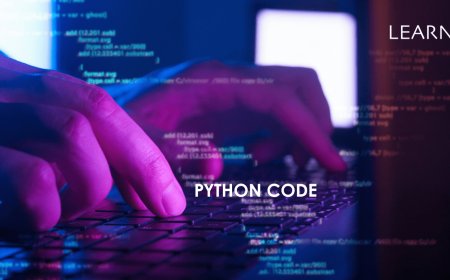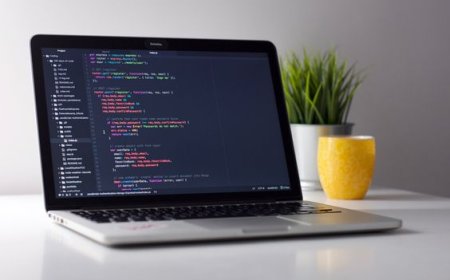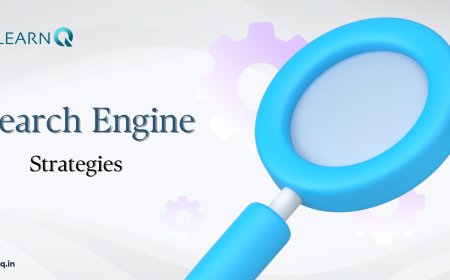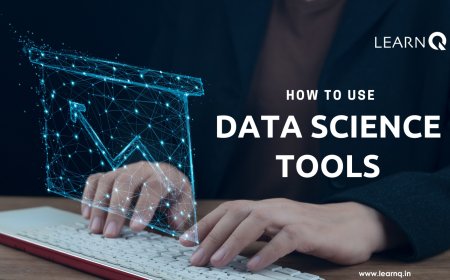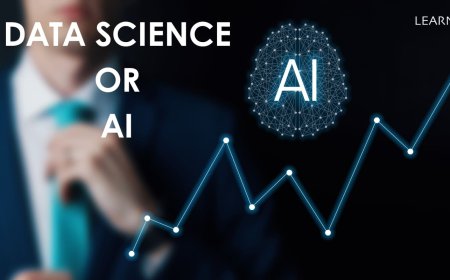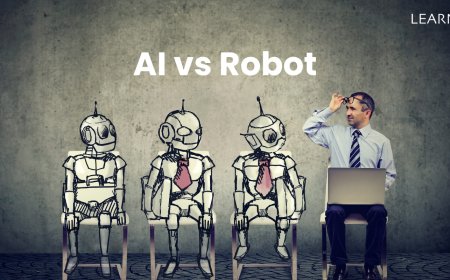
Welcome to our Python tutorials. These guides are designed to help you learn Python to excel in areas like Data Science, and Artificial Intelligence. These fields are all about using data to make decisions and create cool stuff, and Python is the go-to language for doing just that. Python is popular because it's easy to learn and super flexible. Plus, there are tons of tools and libraries available to help you do all sorts of things, from analyzing data to building AI programs. Whether you're just starting out or already know a bit about Python, these tutorials will teach you everything you need to know to succeed in Data Science, Business Analytics, and Artificial Intelligence. We'll cover everything from the basics of Python to more advanced techniques used in Data Science and AI. You'll get hands-on experience and learn practical tips that will help you in your career. Whether you're new to the world of data or already working in the field, these tutorials will be your guide to mastering Python and becoming a pro in Data Science and Artificial Intelligence. Let's get started and see all the amazing things Python can help you do with data.
Python Tutorials
Python, a versatile and powerful programming language, is at the forefront of software development, data analysis, web development, and more. This guide delves into advanced concepts, explores libraries and frameworks, and offers insights into Python's application in data science and web development. We aim to furnish Python developers with best practices, introduce collaborative tools, and present real-world projects and case studies to enhance learning and application.
Advanced Python Concepts
Python, a popular coding language known for its simplicity, has some cool advanced features that can help you become even better at programming. Let's take a look at a few of these advanced Python concepts that any coding enthusiast should know:
1. Generators and Iterators: These help you handle large amounts of data more efficiently, making your code run faster using memory more effectively.
2. Context Managers: These make it easier to manage things your program needs, like files or connections to other places, so your code stays neat.
3. Functional Programming: This means writing your code in a certain style that is cleaner and easier to understand, making it easier to reuse parts of your code in different places.
4. Descriptors and Properties: These help you control how certain parts of your code work, which can help keep things organized.
Sample Code: Using Decorators
def simple_decorator(function):
def wrapper():
print("Function is being called")
function()
print("Function call completed")
return wrapper
@simple_decorator
def hello():
print("Hello, world!")
hello()
Python Libraries and Frameworks
Python programming language is known for being easy to use and flexible. It's widely used in many areas of software development. One of the best things about Python is the huge collection of libraries and frameworks available. These are toolkits that help developers build their projects faster and with more features.
For example, there's NumPy for doing math stuff, Pandas for working with data, and TensorFlow for making machine learning programs. If you're making a website, you can use frameworks like Django or Flask to speed up the process. There are lots of tutorials out there to help you learn how to use these tools effectively. Whether you're just starting or you've been coding for a while, using Python libraries and frameworks can make your projects better and save you time.
How Python Helps with Data Science and Analysis
In today's world, where data is so important, Python is a really useful tool. It helps people understand and use big sets of data. Let's take a look at why Python is great for this:
-
It Does a Lot of Things: Python comes with lots of ready-made tools that help people work with data. These tools make it easy to organize, understand, and show data in different ways.
-
It's Easy to Learn: Python is easy to understand, even if you're new to programming. People who already know how to use it can do more complicated things too. Plus, because Python is easy to read, it's good for working together with others.
-
People Help Each Other: There's a big community of people who use Python. They make guides and answer questions online, so it's easy to find help if you need it.
Here are some ways Python is different from other tools:
-
Python vs. R: R is good for some things, but Python can do a wider range of tasks. For example, Python is used for things like making websites and automating tasks, not just analyzing data.
-
Python vs. SQL: SQL is important for working with databases, but Python is better for working directly with data, like organizing it and making charts.
-
Python vs. Excel: Excel is easy to use, but Python can do more with big sets of data. It can handle complicated tasks and do things automatically.
Sample Code: Data Analysis with Pandas
import pandas as pd
# Loading data
data = pd.read_csv('data.csv')
# Data analysis
print(data.describe())
Web Development with Python
Python is a really useful tool for making websites. It's easy to learn and understand, which makes it popular with developers. Whether you're just starting or you've been coding for a while, trying out Python tutorials for web development can help you make all sorts of cool things. Python comes with lots of extra tools, like Django and Flask, which help you build websites faster. This means you can spend more time working on what your website does, rather than getting stuck on how to make it work. Plus, Python can easily work with databases, the parts of a website people see, and other helpful tools. This makes Python a great choice for making websites that can handle lots of users and lots of data. So, if you want to make anything from a simple blog to a complicated website, learning Python for web development is a good idea.
Here's a simple example of Python code for making a basic website using Flask:
Sample Python code for a basic web application using Flask
from flask import Flask
app = Flask(__name__)
@app.route('/')
def hello_world():
return 'Hello, World!'
if __name__ == '__main__':
app.run()
Best Practices and Tips for Python Developers
To enhance code quality and maintainability, adhere to the following best practices:
-
Code Readability: Follow PEP 8, Python's style guide, to ensure code consistency.
-
Online Environments: Use virtual environments to manage dependencies and avoid conflicts between projects.
-
Code Reviews: Regularly engage in code reviews to catch bugs early and foster knowledge sharing.
Collaborative Python Tools and Version Control
When people work together on stuff like Python tutorials and digging into data science, it's important to have good tools and a way to keep track of changes. Python is a big deal in AI and data science, so everyone must be on the same page. Platforms like GitHub, GitLab, and Bitbucket are awesome because they let teams work together easily. They help keep track of different versions of code and give a place for people to talk about the work, track problems, and review each other's code. This makes it easy for people from different places to work together smoothly.
Using version control with Python tutorials and data science projects means every change to the code is recorded. This makes it easier to find and fix bugs, go back to an older version of the code if needed, and keep everything organized. This helps teams work better and keeps things improving over time.
Projects and Case Studies
Starting to learn Python can be exciting, but getting good at it usually needs more than just reading about it. That's where projects and case studies come in. They let you practice what you've learned and help you become better at solving problems. Here's why adding projects and case studies to your Python lessons can speed up your learning:
1. Practical Application: Projects let you use Python in real-life situations. This helps you understand how things work by actually doing them.
2. Problem Solving: Working on case studies makes you think hard and find creative solutions. It's like solving puzzles in Python, which makes you better at it.
3. Showing Off: When you finish projects and case studies, you have proof that you're good at Python. This is great to show to others when you're looking for jobs or other opportunities.
Sample Project: Building a Blog with Flask
-
Objective: Create a simple blog website where users can post articles, view posts, and interact through comments.
-
Key Features: User authentication, CRUD operations for posts, and a commenting system.
-
Technologies: Flask for the backend, SQLite for the database, and HTML/CSS for the front end.
Python tutorials are helpful for everyone, whether you're just starting out or already know a lot about coding. Python is great because it's easy to understand and lots of people use it. There are tons of libraries and tools you can use with Python to build all sorts of cool stuff for the web. Whether you're making the back end of a website with Flask or Django, working on the front end with Django REST framework, or doing data stuff with Pandas and NumPy, Python tutorials teach you what you need to know. By practicing with tutorials and doing your projects, you can get good at Python and open up a bunch of opportunities in coding, data analysis, and more. So, check out Python tutorials and start learning it'll help you get better at coding and could lead to some awesome opportunities.
